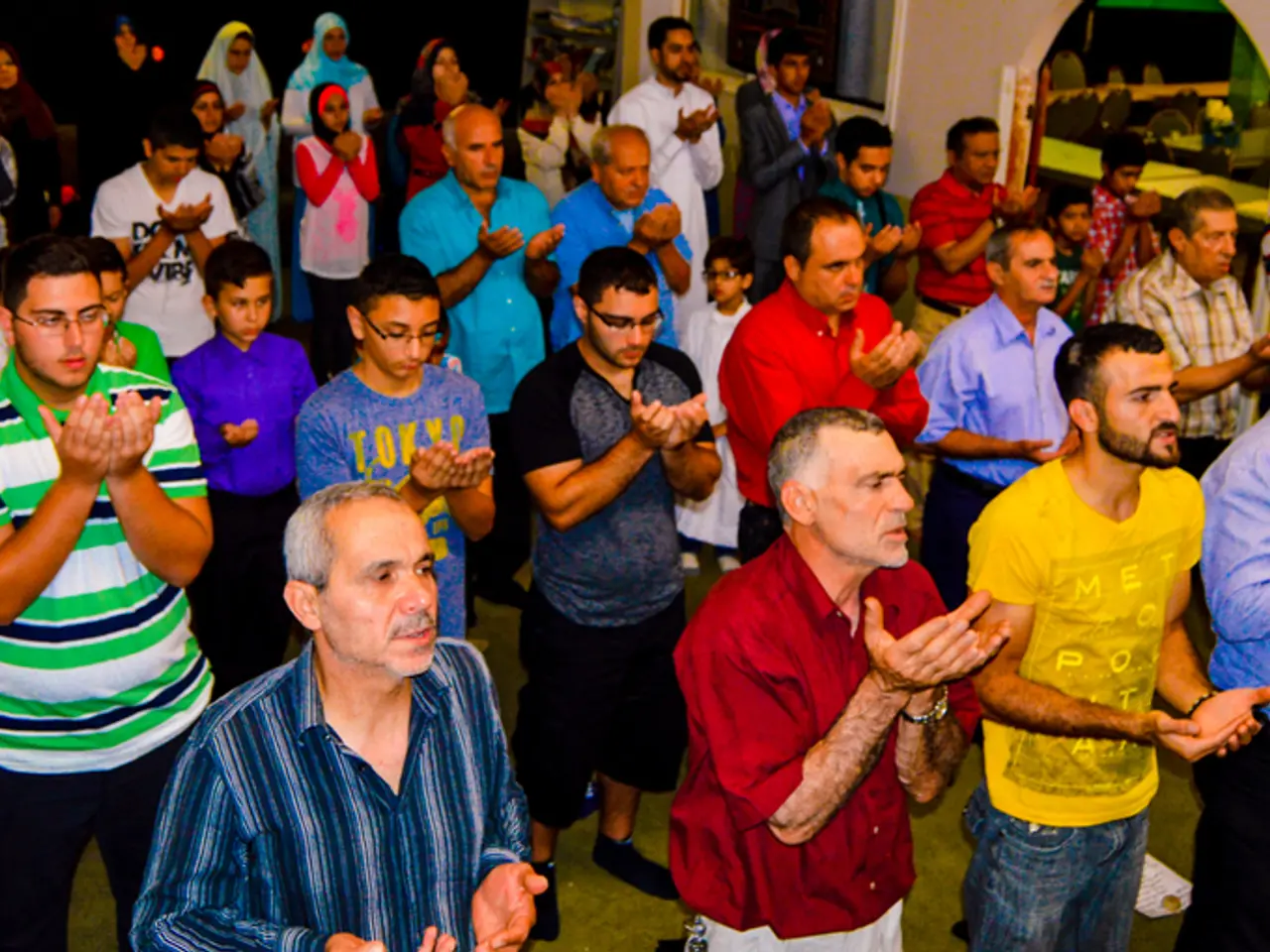Strict Religious Conversion Laws Proposed for Chhattisgarh Regulation
Chhattisgarh, a state in central India, is planning to introduce a stricter law to curb religious conversions, expected to be tabled in the upcoming winter session of the state Assembly. The proposed legislation aims to strengthen the existing Chhattisgarh Freedom of Religion Act by imposing up to ten years imprisonment for forced conversions and mandating anyone wishing to convert to another religion to notify local authorities two months in advance [1].
This move follows the arrest of two Catholic nuns and a tribal man accused of forced religious conversion and human trafficking, which sparked national controversy and highlighted tensions around religious conversions in the state [1][2]. The state's BJP government, particularly home minister Vijay Sharma, asserts that current laws are inadequate to prevent “systematic conversion activities,” thus seeking a more empowering legal framework [4].
The draft law also reflects growing pressure from Hindu groups demanding restrictions on Christian missionary activities in tribal areas, including calls for banning Christian priests from indigenous villages and demolishing churches accused of facilitating conversions [3]. This environment signals increasing politicization of religious conversion issues, with the government aligning with Hindu nationalist concerns while facing criticism for potential communal targeting [4][5].
Key elements of the proposed stricter law include:
- Ten-year jail term for forced religious conversions.
- Mandatory prior notification (two months) to local administration by the individual intending to convert.
- Strengthening enforcement powers to curb alleged illegal conversion activities, especially in tribal regions.
The decision to bring the anti-conversion legislation in the winter session of the Assembly was made around a week after the arrest of two Kerala nuns and a tribal at the Durg railway station in Chhattisgarh on charges of forced religious conversion and human trafficking. The trio were granted bail by a special NIA court in Bilaspur, Chhattisgarh on Saturday [2].
The proposed law in Chhattisgarh may have broader implications, including heightened scrutiny and legal risk for religious conversion activities, intensified communal tensions, and a potential impact on Christian missionary work in Chhattisgarh's tribal belt [1][3][4].
[1] The Indian Express. (2022, October 15). Chhattisgarh govt to bring anti-conversion law in winter session of Assembly. Retrieved from https://indianexpress.com/article/cities/raipur/chhattisgarh-govt-to-bring-anti-conversion-law-in-winter-session-of-assembly-8730349/
[2] The Hindu. (2022, October 16). Catholic sisters, tribal man granted bail in Chhattisgarh. Retrieved from https://www.thehindu.com/news/national/catholic-sisters-tribal-man-granted-bail-in-chhattisgarh/article66276603.ece
[3] Scroll.in. (2022, October 15). Chhattisgarh’s anti-conversion law: A step towards religious polarisation. Retrieved from https://scroll.in/article/1028785/chhattisgarhs-anti-conversion-law-a-step-towards-religious-polarisation
[4] The Print. (2022, October 15). Chhattisgarh govt plans to bring anti-conversion law amid outrage over arrest of Catholic nuns. Retrieved from https://theprint.in/india/chhattisgarh-govt-plans-to-bring-anti-conversion-law-amid-outrage-over-arrest-of-catholic-nuns/998725/
[5] The Wire. (2022, October 15). Chhattisgarh government plans to bring anti-conversion law amid outrage over arrest of Catholic nuns. Retrieved from https://thewire.in/religion/chhattisgarh-government-plans-to-bring-anti-conversion-law-amid-outrage-over-arrest-of-catholic-nuns
- The proposed legislation in Chhattisgarh, aimed at strengthening the existing Freedom of Religion Act, mirrors growing political interest in policy-and-legislation regarding religious conversions, as the state government plans to impose stricter penalties for forced conversions and mandate prior notice to local authorities.
- The intensifying politicization of religious conversion issues, exemplified by the upcoming anti-conversion law in Chhattisgarh, has put Christian missionary activities under increased scrutiny and debate within the politics of general-news, raising concerns about potential communal targeting and its possible repercussions on religious harmony.








